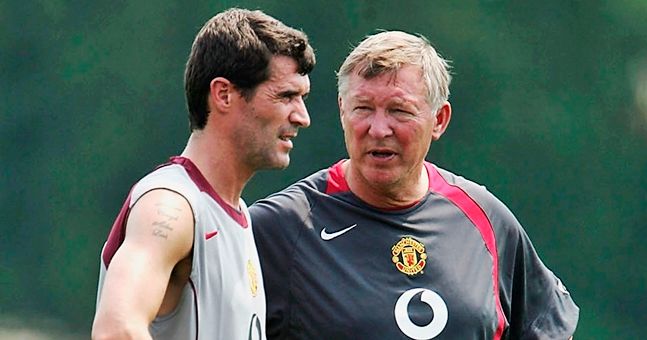

Share
28th August 2022
05:19pm BST

"The times I had run-ins with Ferguson, it was when he pulled me in about my drinking. He'd say to me, 'You were out until 3 or 4am'. I'd say I was. I never ever lied to him about that."Neville pointed out how Ferguson had eradicated United of their 'drinking culture' after he took over, in 1986, but still allowed his players to have the odd night out. Keane interjected. "Do you know why? Because we were winning. He tolerated it because we were winning. We were not going out on Thursday nights, but if we went out on a Wednesday, after a midweek game, it was tolerated as long as we backed it up on a Saturday." "He couldn't understand, sometimes, that I'd go out for a few drinks on a Sunday night," Keane added. "I'd tell him that it was my way of relaxing or switching off. But I will put in a performance on Wednesday. It's not like the team will have to carry me. I'll perform for you." [caption id="attachment_174621" align="aligncenter" width="647"]
 Roy Keane and Alex Ferguson stand together during a Manchester United training session in Philadelphia, in 2004. (Photo by Phil Cole/Getty Images)[/caption]
Roy Keane and Alex Ferguson stand together during a Manchester United training session in Philadelphia, in 2004. (Photo by Phil Cole/Getty Images)[/caption]
"They were all maybe in his office - private stuff. I remember one of the worst ones. I was supposed to do something, like a function. I might have been out with my cruciate, at the time. "The team were away, and he asked me to go do an appearance somewhere in Manchester. Present some trophies somewhere. And I remember, I couldn't find the place where I was supposed to do it. Genuinely. But he went mad at me, on the Monday. A couple of days later. "I couldn't find the area. It was a club somewhere and the kids were supposed to get some trophies presented to them. When I got back [training], he called me in and I said, 'I couldn't find the place'. "It got to a point were we literally discussed me leaving the club over it. 'I said fine, no problem'... Nice chat, dad!"Keane, of course, did not leave United that season. His first season as United captain had been ended by that cruciate injury, in September 1997. The Cork native returned for 1998/99 and was an inspiration as United won the treble of league, FA Cup and European Cup. Ferguson would later write of one of Keane's best ever performances in that treble season - an away win over a formidable Juventus side. Keane was booked in that semi-final, in the Champions League, but scored a goal that sparked a comeback and paid no heed to the fact he would miss the final with suspension. "It was the most emphatic display of selflessness I have seen on a football field," Ferguson wrote in his auto-biography. "Pounding over every blade of grass, competing as if he would rather die of exhaustion than lose, he inspired all around him. I felt it was an honour to be associated with such a player."
Explore more on these topics: